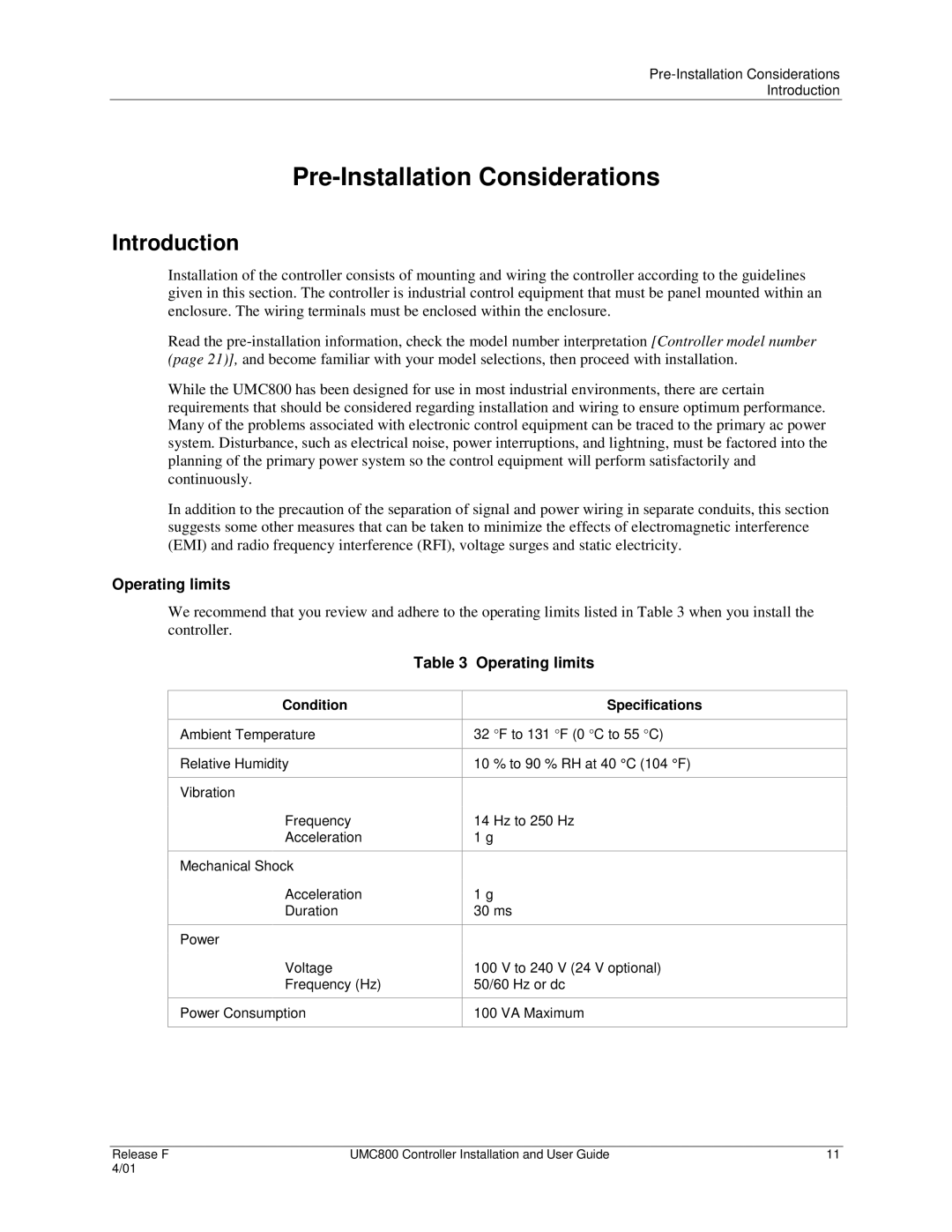
Introduction
Pre-Installation Considerations
Introduction
Installation of the controller consists of mounting and wiring the controller according to the guidelines given in this section. The controller is industrial control equipment that must be panel mounted within an enclosure. The wiring terminals must be enclosed within the enclosure.
Read the
While the UMC800 has been designed for use in most industrial environments, there are certain requirements that should be considered regarding installation and wiring to ensure optimum performance. Many of the problems associated with electronic control equipment can be traced to the primary ac power system. Disturbance, such as electrical noise, power interruptions, and lightning, must be factored into the planning of the primary power system so the control equipment will perform satisfactorily and continuously.
In addition to the precaution of the separation of signal and power wiring in separate conduits, this section suggests some other measures that can be taken to minimize the effects of electromagnetic interference (EMI) and radio frequency interference (RFI), voltage surges and static electricity.
Operating limits
We recommend that you review and adhere to the operating limits listed in Table 3 when you install the controller.
Table 3 Operating limits
Condition
Ambient Temperature
Relative Humidity
Vibration
Frequency
Acceleration
Mechanical Shock
Acceleration
Duration
Power
Voltage
Frequency (Hz)
Power Consumption
Specifications
32 °F to 131 °F (0 °C to 55 °C)
10 % to 90 % RH at 40 °C (104 °F)
14 Hz to 250 Hz
1 g
1g
30ms
100 V to 240 V (24 V optional) 50/60 Hz or dc
100 VA Maximum
Release F | UMC800 Controller Installation and User Guide | 11 |
4/01 |
|
|
